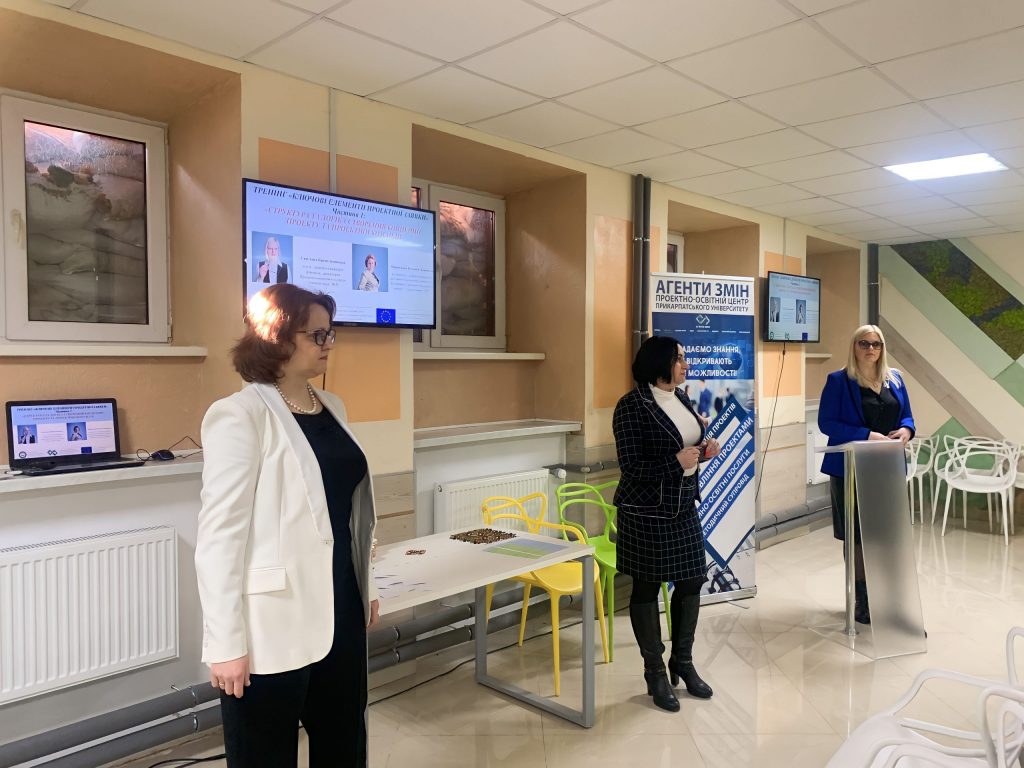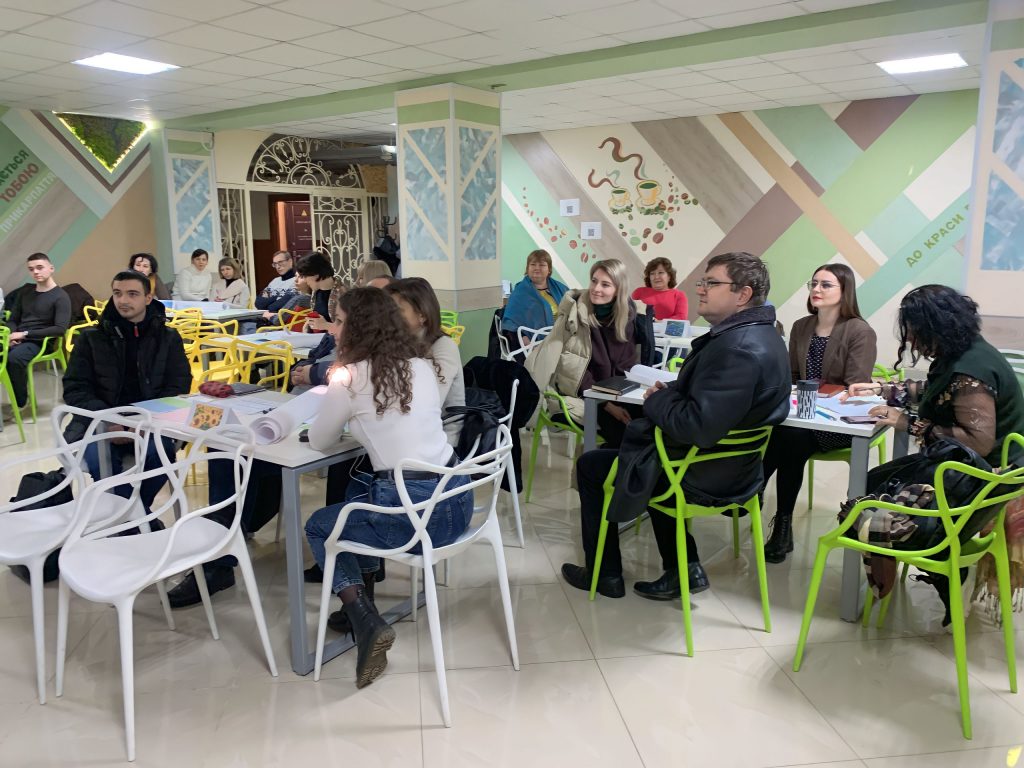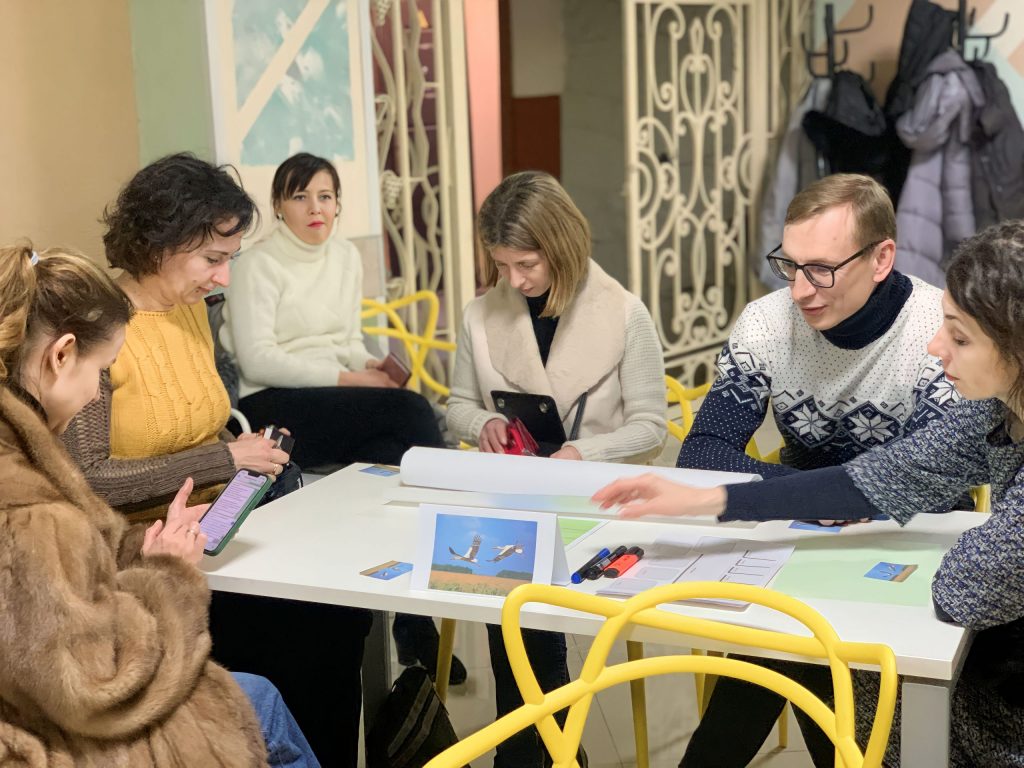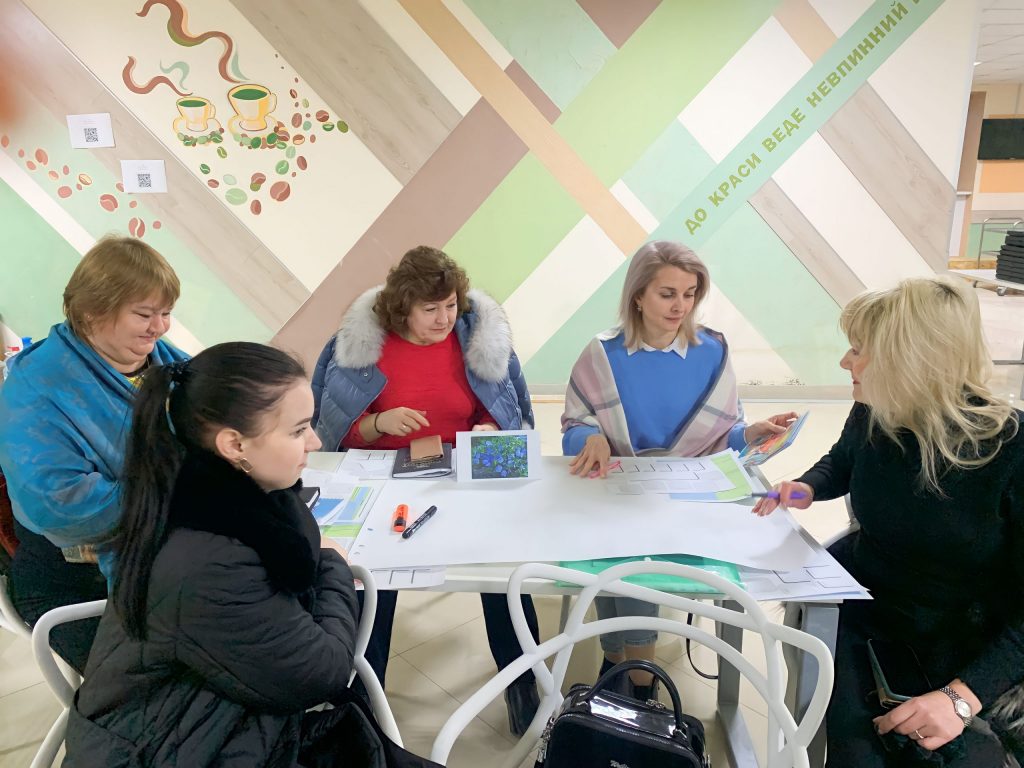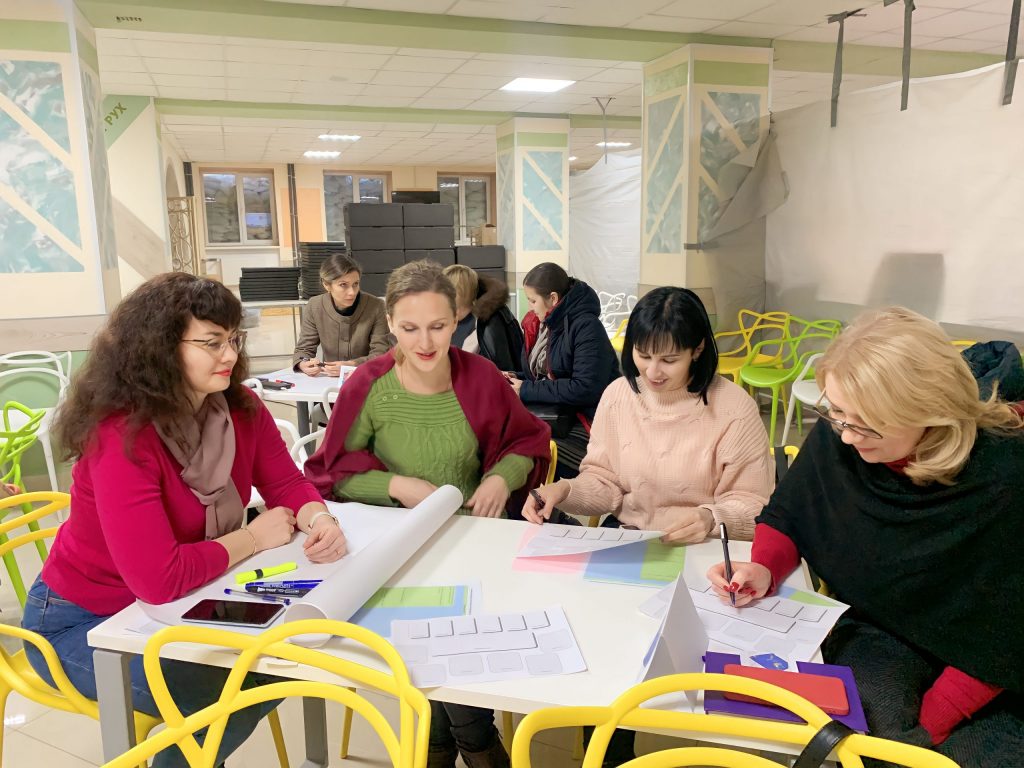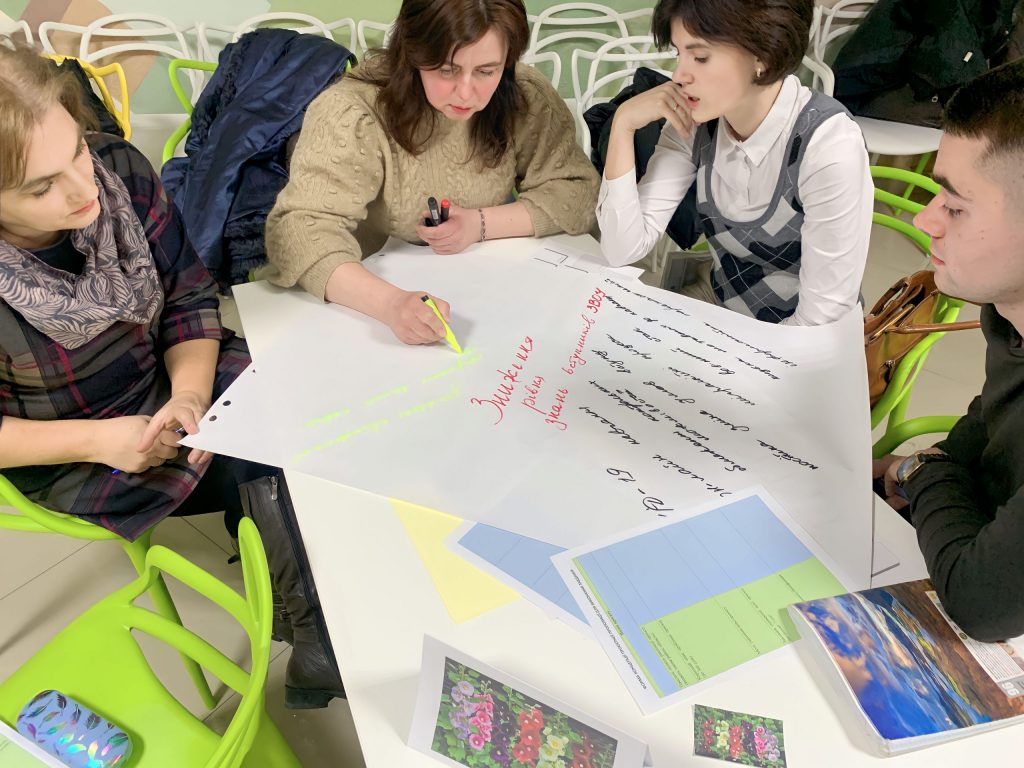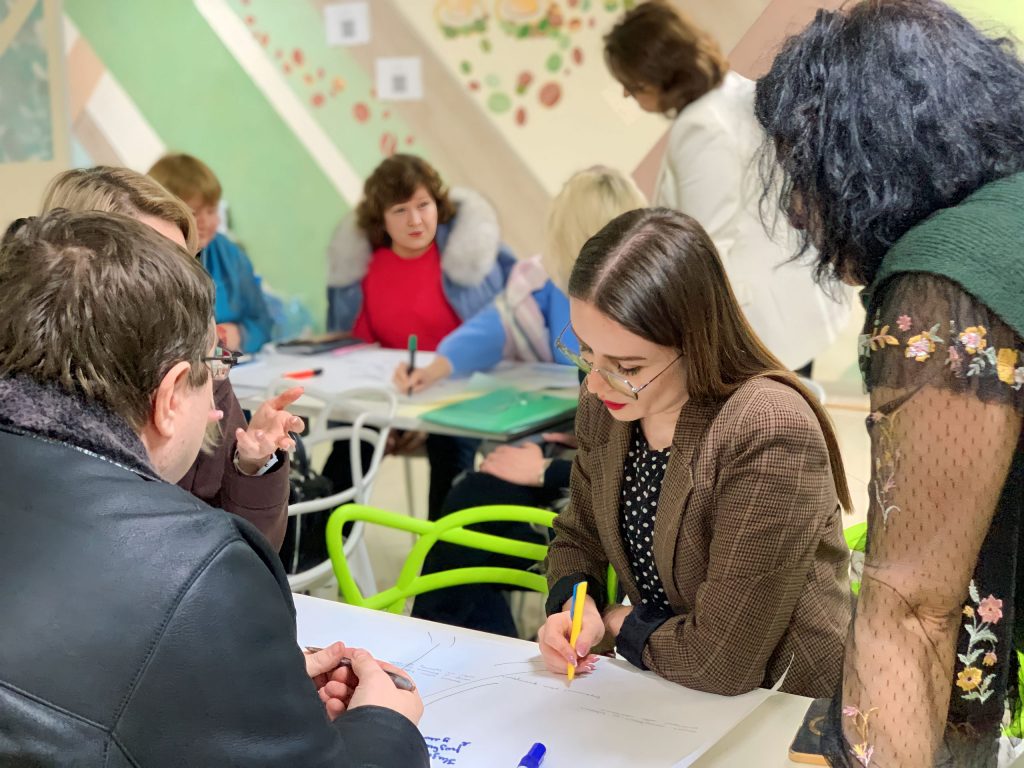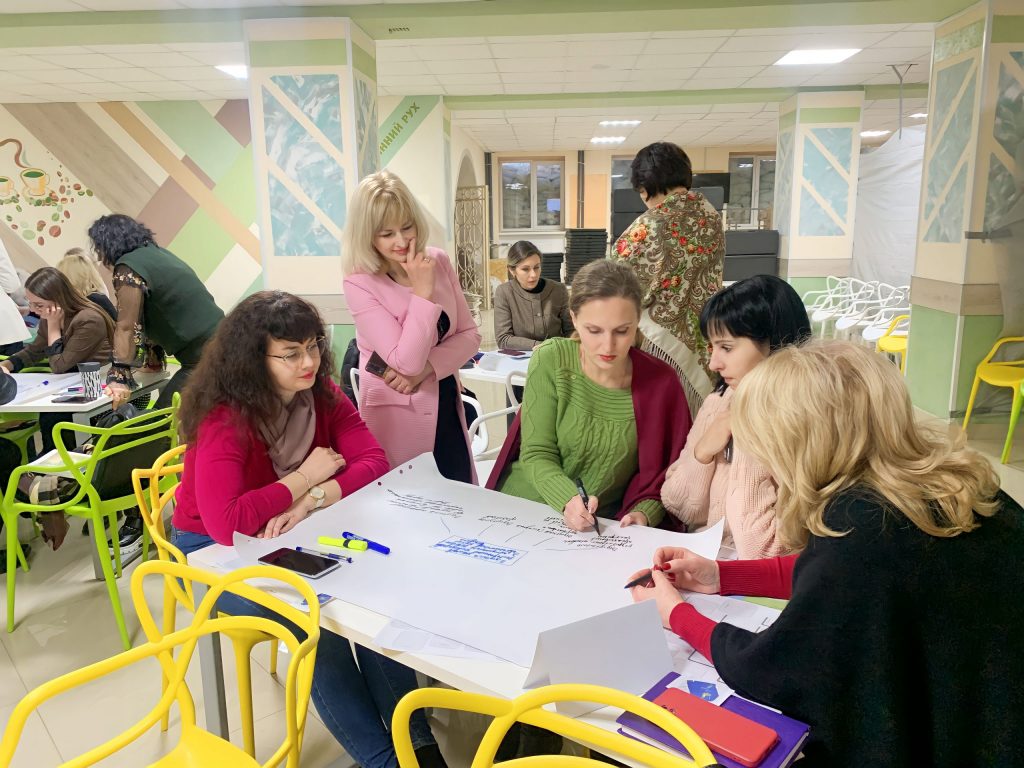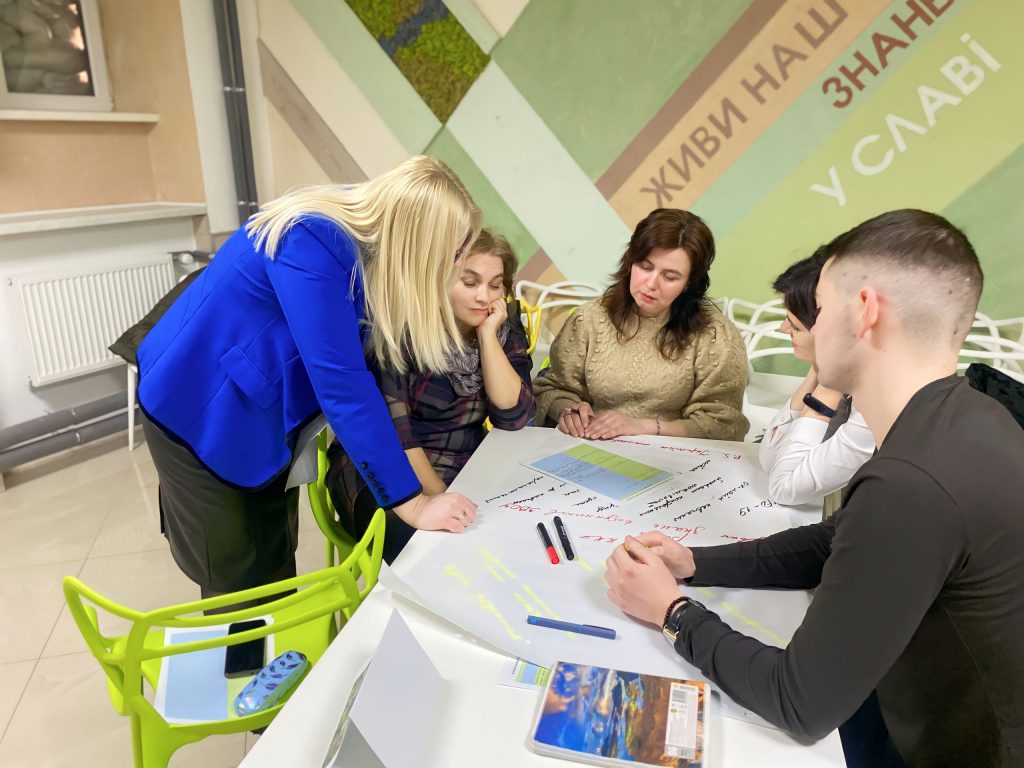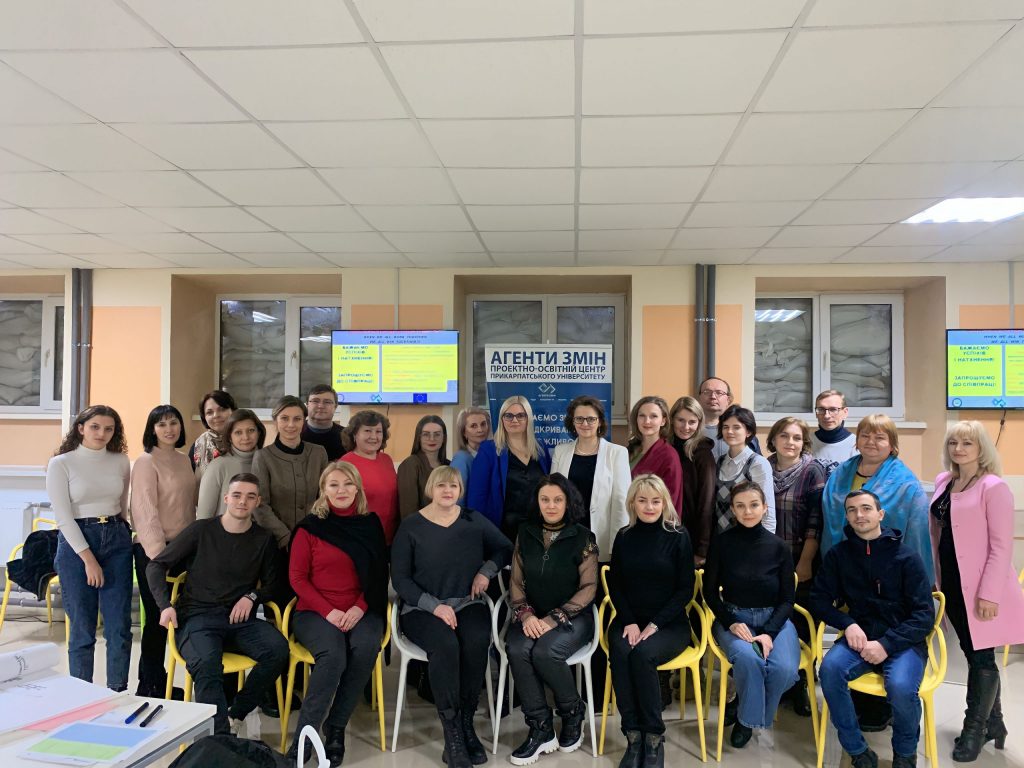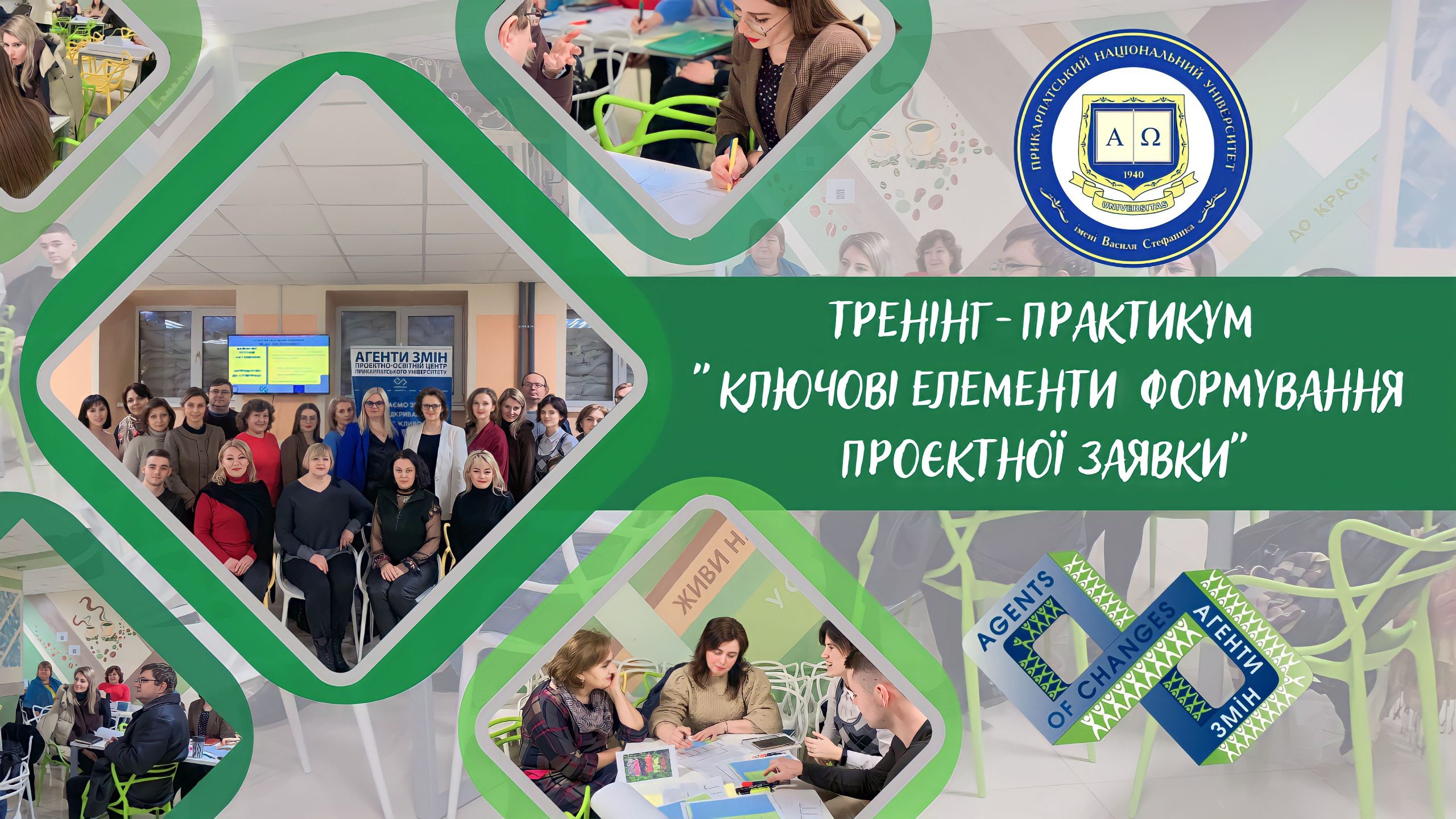
Recently, the first part of an interactive training on project management for the academic staff of the Vasyl Stefanyk Precarpathian National University was held by the team of the Project and Educational Center “Agents of Change” of the PNU on the topic “Structure and logic of creating a project concept and project team”.
The participants were greeted by Valentyna Yakubiv, First Vice-Rector of the University, who emphasized the need to increase the activity of the university’s academic staff in project activities and, especially, the development of multidisciplinary projects.
The main speakers of the training were Svitlana Kropelnytska, Director of the Center “Agents of Change” at PNU, PhD in Economics, Associate Professor of the Department of Finance, and Myroslava Kulesha-Lubinets, specialist of the Center “Agents of Change” at PNU, PhD in Psychology, Associate Professor of the Department of General and Clinical Psychology.
The training was held in an interactive practice-oriented format. The participants were randomly divided into teams that included representatives of different specialties. Thus, the teachers had the opportunity to generate joint project ideas, develop the main components of its concept, such as the problem, goal and objectives, activities and expected results of the project.
To ensure this format, the event was also attended and assisted by experts from the Center “Agents of Change” of the PNU, associate professors of the Department of Finance Zoryana Krykhovetska, Tetiana Myhovych, and Tetiana Solodzhuk.
During one of the practical parts of the training, Svitlana Kropelnytska noted: “In project activities, one should be well aware that such activities are multi-vector and require a diversified approach to forming a project team, when specialists from different fields, directions and specialties are involved. Therefore, one should not isolate oneself and work on a project idea alone, but rather involve as many stakeholders as possible in the discussion.”
“I am pleasantly surprised by the activity of the training participants in performing practical tasks, because developing a project concept and forming a team is perhaps the most difficult stage in the project management process, and they have successfully coped with it,” said Myroslava Kulesha-Lubinets.
The training participants highly appreciated the organization of teamwork in groups, the creative approach of the event (random group formation, constant support and motivation), the qualifications of the trainers, a detailed review of existing projects, etc.

